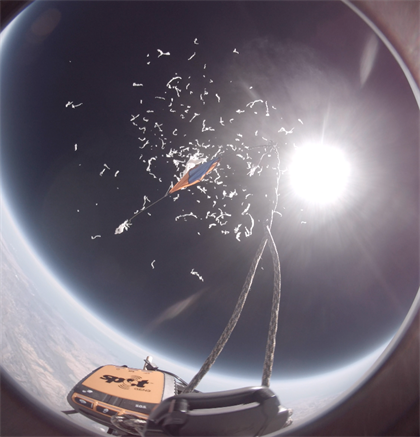
In the past nine years the SA National Space Agency (Sansa) has been developing capabilities in operational space weather and operates a limited focus space weather centre at its Hermanus premises.
Prior to the establishment of the space weather centre, South Africa launched the continent’s first cube satellite, TshepisoSat, in 2013, which to date has proved its worth by providing much-needed space weather data for research purposes.
In 2017 the International Civil Aviation Organisation (Icao) made a call for states to indicate interest in becoming a regional provider for space weather information. Icao is a specialised agency of the UN, the objectives of which include fostering, planning and developing air transport to ensure the safe growth of international civil aviation throughout the world.
The amendments were made after the realisation that in the interconnectedness and interdependence technological systems of modern society, space weather events could negatively affect numerous sectors, leading to operational failures. Research showed the defence, communication, navigation, aviation and energy sectors were most vulnerable to space weather effects.
The effects were threefold:
- Reduced signals from global navigation satellite systems that adversely affect navigation;
- Increased radiation, which can destroy human cells and tissue, especially during long-haul flights; and
- High-frequency radio communications blackouts, critically important to manage for the aviation and marine sectors.
South Africa, through Sansa, submitted a proposal for the provision of space weather information to the aviation sector flying in African airspace.
After undergoing an assessment and audit, South Africa was selected as one of two Icao-designated regional space weather centres – the other being a joint centre run by Russia and China.
The selection process to become one of the Icao regional centres was rigorous and it involved a self-assessment and an onsite audit undertaken by the World Meteorological Organisation, which found South Africa compliant. The competitiveness of our science system in general, and space science in particular, was confirmed last November when South Africa was among the three global centres and two regional centres.
The major benefit of this designation is access to compliant information and local training because the aviation sector – both commercial and private – is required to comply with the Icao requirements.
Understanding the global nature of this endeavour, we have committed to be a collaborative partner in the Pan-European Consortium for Aviation Space Weather User Services (Pecasus) – a consortium of nine European countries – and have received designation as an Icao global space weather information provider. Partnering with Pecasus will provide us with a global perspective and offer European space weather data providers an African perspective. This builds on Sansa’s track record in operating as the space weather regional warning centre for Africa.
The global space weather centres will immediately provide weather information. The regional centres will have until 2022 to build the capability to provide the required service. Sansa has started the work necessary for our centre to get to a state of readiness to provide the service. This includes funds mobilisation, development of scarce skills and the growth of science, engineering, technology and innovation capabilities.
The designation will provide opportunities to feed the knowledge economy and increase the national research output in space science and technology, ensuring that usable products are generated from the knowledge.
Sansa already maintains a network of ground-based instrumentation to monitor space weather phenomenons on a regional scale. Given its global positioning in the space weather community and the expertise developed in the past nine years by running a limited operational space weather centre, Sansa is in a position to collaborate with the aviation sector and government and to develop the necessary space weather capability that addresses the nation’s requirements.
The successful designation as an Icao regional centre highlights the capability and potential for growth within the Sansa space weather centre.
South Africa will use the three-year provision by Icao to develop necessary capabilities and be in a position to provide the aviation sector with information that meets its requirements.
I can confidently say that South Africa is ready and capable of meeting the Icao requirements by 2022.
Kubayi-Ngubane is the minister of science and technology




 Publications
Publications
 Partners
Partners








